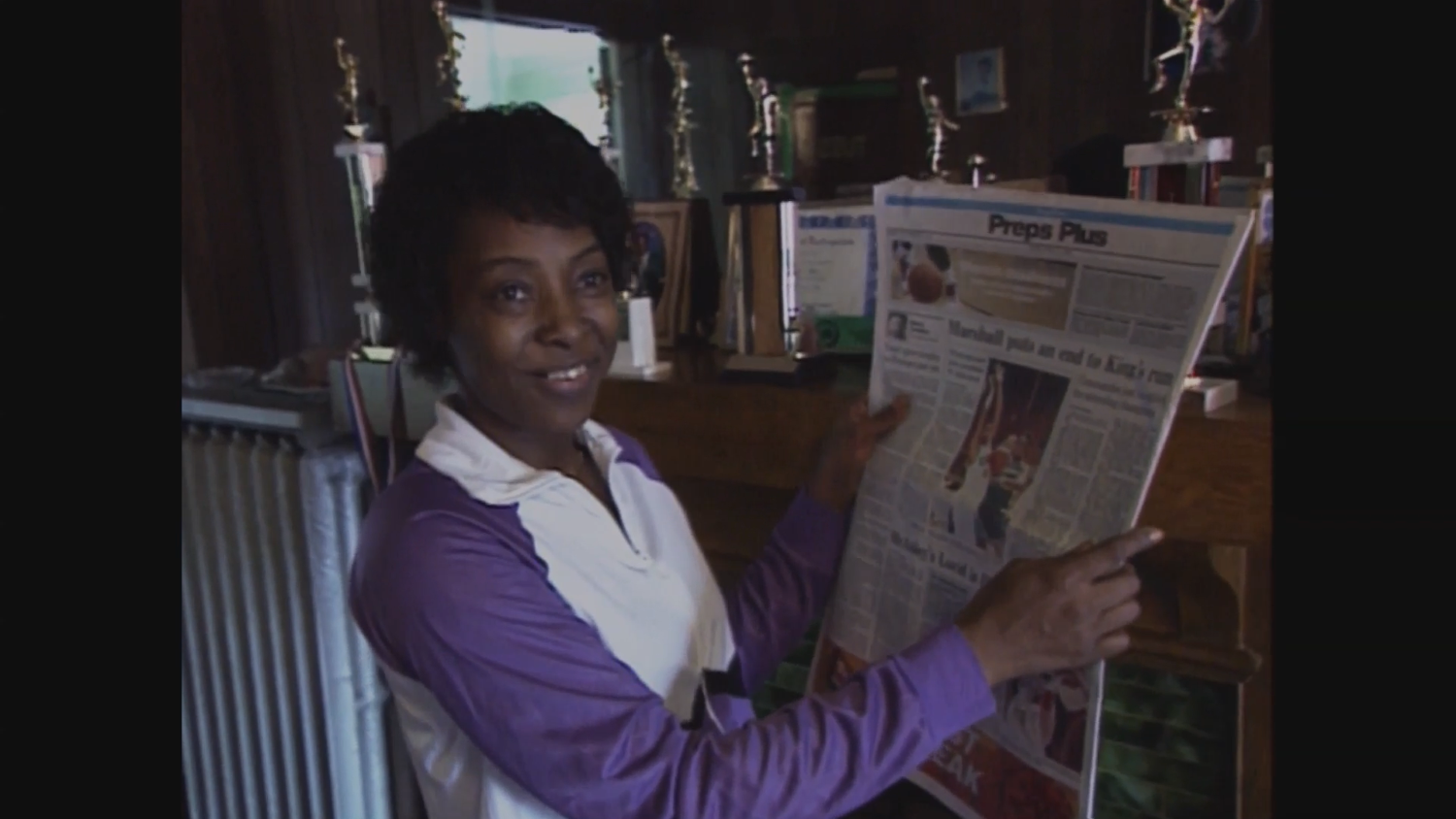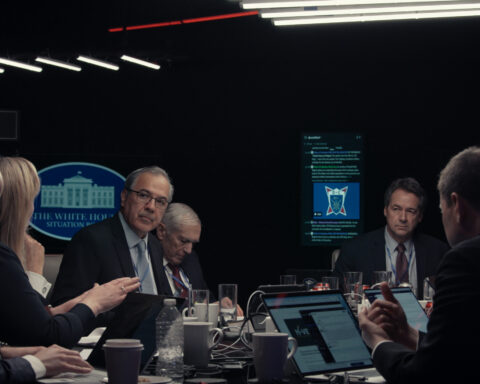Every once in a while, people appear on the political stage with compelling personal narratives and charisma to spare. They’re dedicated and passionate and demonstrate through their actions that they can persevere through adversity. They might possess natural sales personalities, outgoing and brimming with confidence and positivity. They might be reflective and cerebral, with a prophetic vision and an intimidating intelligence. Either way, they are guided by principles and push through one daunting obstacle after another to achieve their goals for the greater good.
If you think I’m describing candidates in this year’s federal election campaign, you probably haven’t been following the campaign very closely. The more I do, the more I become disillusioned by the available slate of candidates and hungry for something more.
The more I think about the characteristics I’d most like to see in politicians, the more I’m reminded of some of my favourite documentary subjects. If I could somehow take their best traits and combine them in a lab, I could produce the ideal political candidate. A seasoned politico who’s wily, cunning and shrewd, and always a step ahead of the competition. Someone who can speak to the experiences of the working and middle classes and fight for their upward mobility. Someone who’s motivated by an altruistic sense of compassion and empathy and always works in the interest of the greater good. Someone who respects science and empirical evidence and uses both to inform policy and progress. And a streetfighter who can be just as pugilistic as their opponent, but who does so respectfully, with poise and precision.
Someone like James Carville, who first came to national attention as Bill Clinton’s campaign manager during the 1992 US Presidential election and as the star of Chris Hegedus and D.A. Pennebaker’s The War Room (1993), which documents that critical national vote. He also worked as a consultant for UK Prime Minister Tony Blair and for the Liberal Party of Canada, and led presidential campaigns in Afghanistan in 2009 and Colombia in 2010.
A charismatic, fiercely intelligent and tenacious politico who seems genuinely motivated to do the right thing—even if “right thing” sometimes means “soundest political tactic”—Carville was credited with defeating George H.W. Bush by focusing public attention on the shortcomings of the highly qualified incumbent. “Stay focused. Talk about things that’ll matter to people,” he reminds his staff. In a moment of genius, he comes up with the slogan, “It’s the economy, stupid.”
With the US mired in a recession, Carville sensed the weak economy was Bush’s Achilles’ heel and targeted it relentlessly. He shrewdly turned Bush’s experience against him, arguing that it was all for naught if everyday people were still struggling. His passionate dedication to the Democratic cause is palpable in The War Room, and his takedowns of Bush and the Republican Party are as entertaining as they are effective. “Why don’t he run the economy and not run his mouth?” Carville barks at a group of reporters. “He knows how to handle a crisis. Good. Ya got one right now—handle it, pardner! The country’s going el busto. Fix it! If you can’t, get out the way!”
The War Room showcases Carville’s ability to cut people down to size with a simple turn of phrase. He chops his opponent into tasty little soundbites, which he then feeds to the media. “George Bush reeks of yesterday,” he sneers to a journalist in his spitfire Cajun cadence. “He has the stench of yesterday! He’s so yesterday, if I think of an old calendar, I think of George Bush’s face on it!”
But Carville is just as effective at managing his own team’s messaging. At one point, he reels off potential campaign promises the Clinton campaign could make to try and win people over, such as providing free education. An aide counters by pontificating on the difficulties in giving free education to 41 million students. Carville, nearly blowing a gasket, sputters, “Don’t complicate the simple!”
Another champion of simplifying the complicated, and of fighting through adversity to achieve a life-altering goal, is Sheila Agee from Steve James’s Hoop Dreams (1994). The mother of promising young basketball star Arthur Agee, Sheila is a struggling, inner-city mother of three living on welfare with her drug-addict husband, Bo. After twenty years of marriage marked by numerous instances of assault and restraining orders, Bo leaves, only to return a year later after serving seven months for armed robbery. Meanwhile, the family’s power and gas are shut off after Sheila loses her minimum-wage job as a nurse’s assistant due to chronic back pain.
That set of circumstances might be enough to crush anyone’s spirit, but Sheila’s ability to persevere with a positive attitude is inspiring. “Each day is a struggle,” she admits in the film. “Trying to deal with the kids’ attitude as well as my own and trying to be strong enough for them and myself.” With little to no support from her husband or anyone else, Sheila keeps her family afloat by refusing to take her eyes off the prize. “I don’t need someone to push me,” she says at one point in the film. “All I need is the goal and the motivation and I’m ready.”
Not only does she achieve her goal of graduating from nursing school, but she does so with the top grades in her class. The scene of Sheila celebrating her graduation in an empty hall with only her children in attendance remains one of my favourite scenes in cinema. It’s a testament to the little triumphs that can change the direction of our lives, unbeknownst to anyone else. (Arthur Agee told the Chicago Tribune in 2004, “You thought everybody else was crying when they saw that scene? I ’bout lost it. To this day, everybody asks, ‘How’s your mom doing?’”)
With her degree in hand, Sheila secured steady work as a private nurse after the film’s completion and moved her family out of Chicago’s West Garfield housing projects to the more comfortable suburb of Berwyn. It’s notable that, in a movie about people doing everything they can to achieve their dream, Sheila is the only one who does. While the men and boys in the film chase fantasies of fame and fortune, Sheila focuses on kitchen table issues. She rolls up her sleeves and slogs through the trenches to achieve the modest yet revolutionary goal of working her family out of poverty. Rent Hoop Dreams here.
Hoop Dreams – Arthur’s Birthday (20th anniversary digital restoration) from Kartemquin Films on Vimeo.
The spectre of poverty hangs over the characters in Jesse Moss’s The Overnighters (2014), winner of the 2014 Allan King Documentary Award from the Toronto Film Critics Association. The town of Williston, North Dakota, is overrun by itinerant workers from across the country looking for jobs in the state’s booming oil fields. With housing vacancies in short supply, unemployed migrants camp out in parking lots and on the side of the road. The predominantly NIMBY townspeople, egged on by the local newspaper’s sensational headlines, want nothing to do with the raft of “homeless” people suddenly inundating their community. But as one worker puts it, “I’m not homeless, I have a home in Kentucky. I’m just struggling.”
Motivated by Christian charity to help the “overnighters” in any way he can, the local pastor, Jay Reinke, makes it his mission to accommodate the migrant workers and to convince his neighbours to do the same. He opens up the church and allows people to sleep on the floor and in the parking lot. He sets up support systems to help them in their job searches and with their integration into the community. “I don’t understand how a community can turn its back on people who don’t have a place to sleep,” he says. “I would just wonder, are we even a community?”
At first glance, Pastor Reinke seems far too naïve to survive in politics. In a key moment in the film, he loans a guy money and tells him, “Write it down, okay, because I’ll probably forget.” He’s excessively dorky, with his grade-school gym-teacher attire and insistence on waving at passing trains. And as a conservative Christian, his politics are across the spectrum from my own.
And yet there’s something tremendously heartwarming and inspiring about his dedication to help those less fortunate than him, and to try and convince others to do the same. “I think the risks are doable, they’re manageable,” he says. “It’s messy. But that doesn’t mean it’s a mistake. It means it’s ministry. And it’s really worth the effort, I believe. I really do.”
At one point, Reinke admits that he struggles with the question of, “What are my motives here? Maybe this is just more self-serving than I realize. Maybe it’s as simple as, I don’t say no very well, and so it’s easier to say yes and live with the consequences.” Reinke shows a level of self-awareness and candor that would be admirable, if impractical, in politics. But at the same time, few things are more indicative of a natural politician than saying yes first and considering the consequences later.
Reinke also falls into the well-worn political trap of concealing something from his constituents—he gives shelter to registered sex offenders without telling the church’s congregation or neighbours—only to have it come to light and threaten to jeopardize his efforts to do good. Even through that, though, he stays focused on what’s right for his two communities: the one in town and the other in church. “It’s a very broken world. Everybody’s broken,” he tells some of the workers staying at his church. “If you feel like people regard you with a little bit of distance, love them anyway. Keep trying to build
a community here; keep trying to be part of the community.”
THE OVERNIGHTERS (Trailer) from filmswelike on Vimeo.
That same sense of empathy and kindness in service of the greater good is also embodied by Temple Grandin, the subject of Errol Morris’s “Stairway to Heaven” from his series First Person (2001). A professor of animal science at Colorado State University, the author of dozens of academic papers on animal behaviour and arguably the world’s most famous autistic person, Grandin revolutionized the meat processing industry by creating a more humane method of killing animals.
She did this by doing something that most politicians pay lip service to but rarely engage in: she imagined herself in a cow’s position, both figuratively and literally. “I know what it’s like to feel fearful and scared,” she says in the film. “I can visualize myself in their body. What would it feel like pushing up against the other cattle? What would it be like seeing out of their eyes? What would it be like if I actually was a cow? People that are most likely to deny animals’ thinking are [considering everything in a human] language. But if you think in pictures, then it’s very easy to imagine.”
Grandin didn’t just imagine it. The animal handling system she designed, which incorporates curves to “utilize the natural circling behaviour of the cattle,” is now used in more than one-third of all the slaughterhouses in the United States. She also drew on her knowledge of animal behaviour to invent the hug box, or squeeze machine—an all-encompassing device (like a massage table with walls that a person can use to apply pressure to their body) that is now used to calm those with severe Autism Spectrum Disorder. As Grandin succinctly put it, “You’ve gotta have the feeling of being held in order to have nice, kind thoughts.”
Kind thoughts are often a currency with little practical value in the tooth-and-nail intensity of a political campaign. To succeed in that environment takes a battler, someone with thick skin who can take the fight to their opponent and do so with a sense of honour and dignity. Someone like Ellen Gabriel, one of the Mohawk leaders featured in Alanis Obomsawin’s Kanehsatake: 270 Years of Resistance (1993).
{Gabriel, who is currently fighting cancer, was president of the Quebec Native Woman’s Association from 2004 to 2010 and was involved in amending the Indian Act through Bill C-31. She also ran for National Chief of the Assembly of First Nations in 2012 and has spoken before the United Nations. Gabriel came to national attention during the Oka Crisis when she served as a spokesperson for the few dozen people in her community who held a roadblock against 2,500 soldiers for more than three months. “I think we conducted ourselves in an honourable way,” she says in the film. “Because we did try to avoid violence. And we knew what they were there for. And we knew that, as it progressed, something really bad could happen. We just felt it, it was something that you could taste, almost, in the air.”
Really bad things did happen, of course. A Sûreté du Québec police officer was killed. A powder keg was lit and threatened to explode all summer long. People across the country and around the world protested in support of the Kanehsatake Mohawks. In nearby Châteauguay, 7,000 people rioted and burned a Mohawk warrior in effigy. Through it all, Gabriel represented her people with an uncommon grace, poise and resiliency. “We’re talking about human lives,” she says in the film. “We’re talking about our rights. This is our territory. And the government has to acknowledge that.”
In addition to Gabriel, Seneca activist Brian Mike Myers also stands out in the film as someone with a prescient, even prophetic understanding of the situation. “In the long course of history,” he says, “the face of Canada will be politically, socially, economically and spiritually changed—back, in favour of our people. Who knows how our great-grandchildren are going to rewrite that? And that’s totally up to them, but we will at least be able to leave the earth knowing that while we were here, we did all that we could to set in motion a better future.” Watch Kanestake here.
This is a claim that, tragically, many of us can’t make right now, as anyone familiar with the facts about the climate crisis will know. The face of Canada is changing, quickly and irreparably, and largely as a result of our own inaction. But these five inspiring individuals would surely tell us that there is still time to alter the long course of history in our favour. All we have to do is follow their lead.












